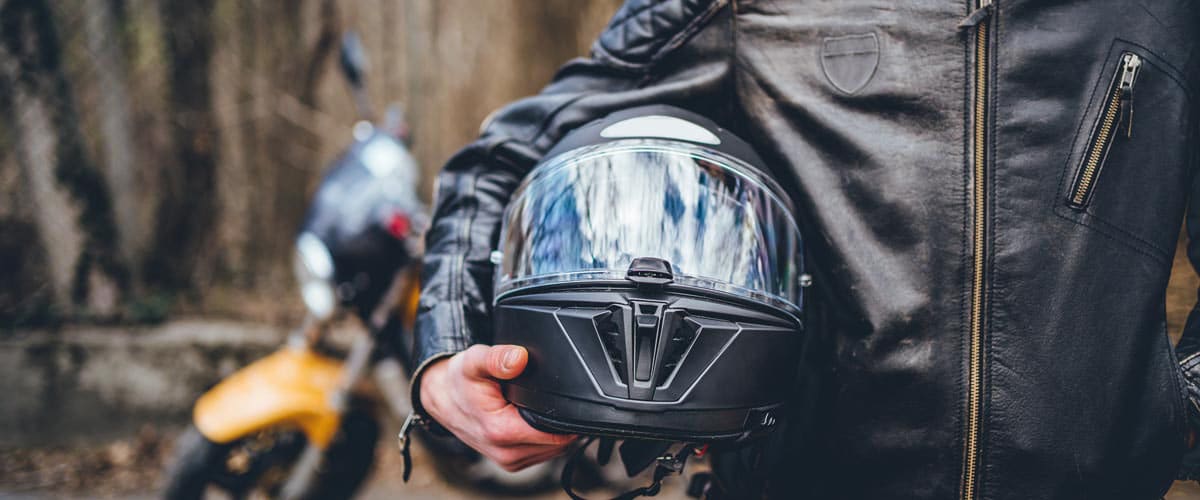Trade My Motorcycle For A Car
July 28, 2021
Trade My Motorcycle for A Car
Let’s answer this question right from the get-go, yes, you can trade your motorcycle for a car. You can trade it privately or with a dealer. What it boils down to is how much you want for the bike. Below we’ll answer some basic questions in this article: Trade My Motorcycle for a Car.
Should I Trade My Motorcycle for a Car
Should you trade your motorcycle for a car depends on what you need as a driver. Your needs change, whether that is because your family is getting bigger or maybe you’re just tired of the ride. Regardless of the reason, trading in your motorcycle for a car helps to reduce your car payment. It also, allows you to take advantage of the tax credit you receive when buying a new or used car.
When is it Better to Trade in your Bike to a Dealership vs When to Sell Privately?
As with any situation, there are negatives and positives to trading in your motorcycle to a dealer versus selling it private party. It all depends on value. Are you looking for ease or are you looking for a possible higher selling price?
Advantages of Trading in Your Motorcycle
- Avoid Scammers: There are plenty of examples of people who have sold private party and ended up the victim of a scam. Trading in your motorcycle to a dealer is the safest route you can take. You may feel like the trade-in value is a little low but no reputable dealer is looking to completely rip you off. There is no risk when you are working with a dealer.
- No Loss of Transportation: When you trade in your motorcycle on a new car at a car dealer you can ride up and drive away the same day. No waiting to get the cash from the buyer, the trade value is applied right then and there. Additionally, you won’t have to take the time to shop on sites like Craigslist or Edmunds to find your car or get someone to give you a ride to the dealer.
- Tax Savings: Trading in your motorcycle has the same advantages as trading in a car tax-wise. The value of your motorcycle will be applied to the car and you are paying taxes on the remaining balance of the car. Fewer taxes means lower payments.
Advantages to Selling Privately
- Possible Higher Value for the Bike: Often the dealer will give you an estimate of the value of your motorcycle based on current market values. It is the same as trading in your car. The trade-in value is going to be lower than the private party value. It all depends on how easy you want it to be when you are buying a new car. Kelley Blue Book can give you an estimate of your motorcycle’s trade-in and private sale value. This will help you decide which is the best route to go.
- Chance to Negotiate Selling Price: Selling via the private party route will give you a greater ability to negotiate with the buyer. Having multiple people interested in buying your bike works to your advantage so you can get the best price for your ride.
If you are interested in learning more about private party sales, read our article on How to Buy a Used Car on Craigslist
How to Get the Biggest Bang for Your Buck for Your Bike
To get the best value for your motorcycle you need to decide on the value you are comfortable accepting for both a trade-in and private party sale. The best move here, if you are trying to get the highest possible payout, would be to sell your bike to a private consumer. Like we said above, the flexibility you have negotiating gives you an edge when it comes to the final sale price.
Do Dealerships Really Want Your Bike?
That’s an easy answer. Yes! The trade-in value is determined by what condition your motorcycle is in and tools like Kelley Blue Book. Dealers are looking to help you find the car you want. Taking in your motorcycle as a trade-in is just a part of that process.
Can You Trade In your Motorcycle with a Loan Still on it?
Yep! It is the same as trading in your car that still has a loan on it. You’ll work together with the lien holder to assess the value of your motorcycle. After paying off the loan you’ll apply what is left to the trade-in value. The loan must be paid off when completing the car deal. Subtract the loan from the trade-in offer and what is left is the value that is applied to the car you are purchasing.
Does Trading in a Bike Lose You Tax Credit?
Nope. According to the Washington State Department of Revenue (DOR), you can and still receive the tax credit when trading in your motorcycle for a car. For more info on how the tax credit on trade-ins works visit the DOR’s trade-in guide.

Get Your Motorcycle Ready for Sale or Trade
Whether you are selling it yourself or trading it in to a dealer, the process to get the bike ready is relatively the same. Make sure your motorcycle is looking fly before you show up to the dealer or meet someone to sell it. Dealers and private parties will be examining the bike thoroughly. Make sure you have it cleaned up and ready to go. This means cleaning up the dirt, grit, and grime you might have grown fond of over the years. Next, you will want to check those hard-to-see areas. Check under the seat, up under the fenders, behind the lights, and any other place you wouldn’t usually check. It may seem silly to you but put yourself in the buyer’s shoes. Being critical of appearance could help get you more money.
Check to make sure there isn’t any calcium build-up on the battery terminals. Also, try to buff out any light scratches and eliminate surface rust on chrome or metal parts.
The Decision. Do I trade in My Bike or Do I Sell It?
Throughout this article, we’ve outlined the difference between trading in your motorcycle or selling it to a private party. Some of these points favor selling your bike privately but many of them lean towards trading it in. This is a big decision you are making and you must do what works best for you.
If you need a car quickly then obviously trading it in is the way to go. It is a safe and easy transaction that doesn’t require the extra time that selling privately will.
To get the most bang for your buck, sell it via Craigslist, Facebook Marketplace or any private party site is the way to go.
There is no wrong answer here. It is your decision and one that we are happy to have been able to help you make.
FAQ Section
It depends on the dealership. Some dealerships may accept motorcycles with a salvage title for trade-in, but the value offered may be significantly lower than for a motorcycle with a clean title. It’s best to check with the dealership beforehand.
You will typically need the following documents to trade in your motorcycle: – Title or payoff information: You will need the title of the motorcycle or the payoff information from your lender if you still have a loan on it. – Registration: You will need the current registration of the motorcycle. – Identification: You will need a valid driver’s license or other government-issued identification. – Maintenance records: If you have maintenance records for the motorcycle, it can be helpful to bring them to show that the motorcycle has been well-maintained.
Yes, many dealerships will allow you to trade in both a motorcycle and a car at the same time. The trade-in value of both vehicles will be applied to the purchase price of the new or used car you are buying.
It depends on the dealership. Some dealerships may accept non-running motorcycles for trade-in, but the value offered will be significantly lower than for a running motorcycle. It’s best to check with the dealership beforehand.
Yes, in many states, you will receive a tax credit for the trade-in value of your motorcycle when you purchase a new or used car. This means that you will only pay sales tax on the difference between the purchase price of the car and the trade-in value of the motorcycle. However, tax laws vary by state, so it’s best to check with the dealership or a tax professional for specific details.
The trade-in value of your motorcycle is determined by several factors, including its make, model, year, mileage, condition, and current market demand. The dealership will assess your motorcycle and offer you a trade-in value based on these factor
Yes, you can negotiate the trade-in value of your motorcycle. It’s a good idea to research the value of your motorcycle beforehand using resources like Kelley Blue Book so that you have an idea of what it’s worth. However, keep in mind that the dealership may not be able to offer you the full private sale value of your motorcycle, as they need to account for the costs of reconditioning and reselling it.

